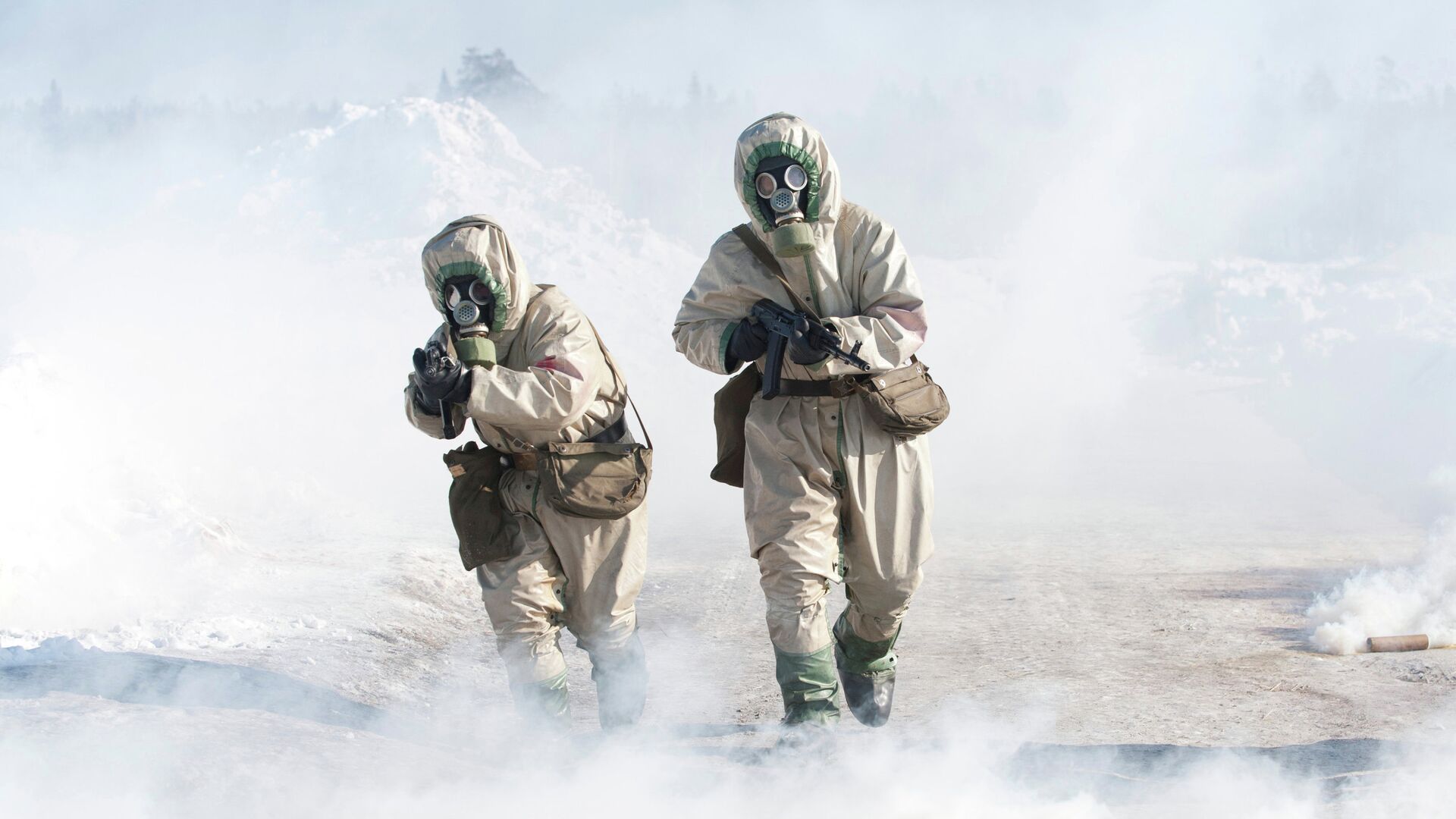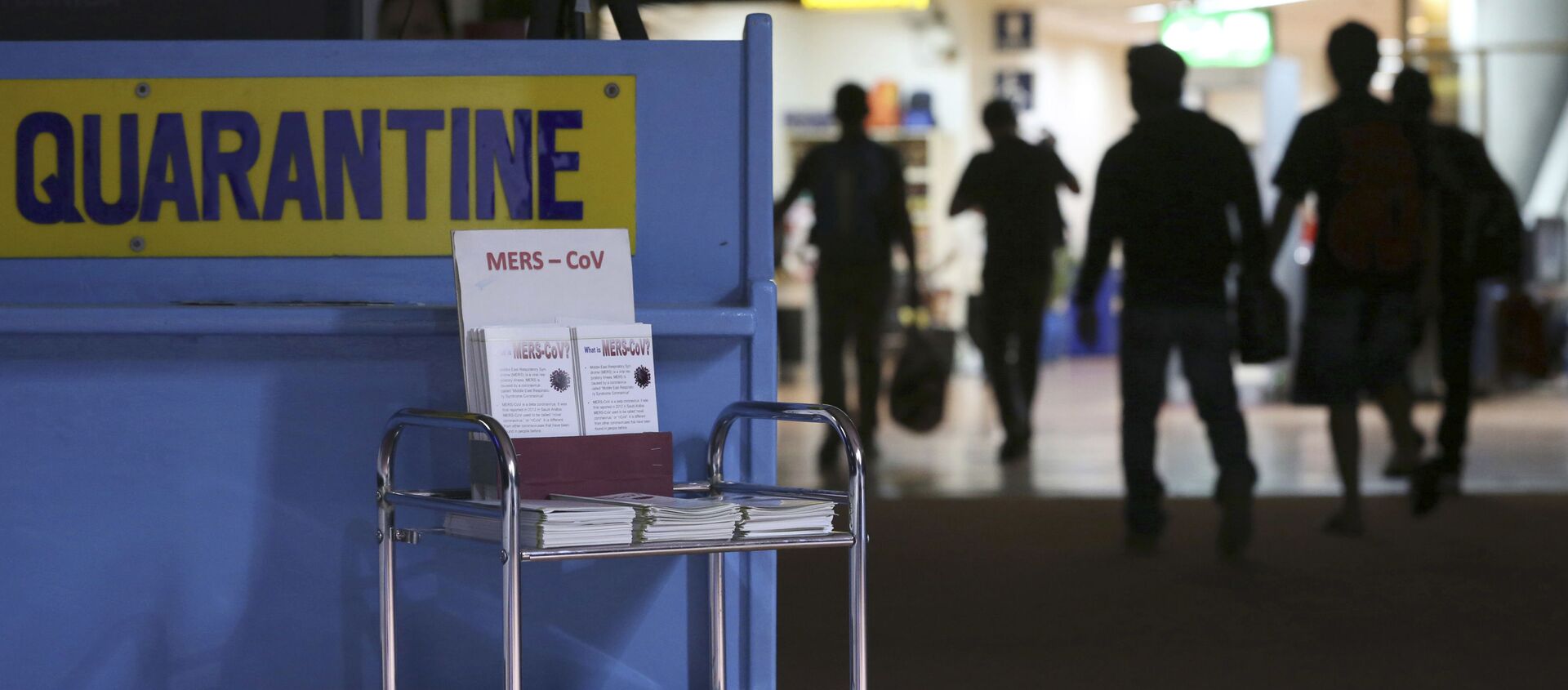https://sputnikglobe.com/20210817/archives-reveal-us-helped-japanese-war-criminals-escape-trial-in-exchange-for-bio-materials-1083635372.html
Archives Reveal US Helped Japanese War Criminals Escape Trial in Exchange For Bio Materials
Archives Reveal US Helped Japanese War Criminals Escape Trial in Exchange For Bio Materials
Sputnik International
More evidence of Japanese troops’ atrocities of germ warfare during World War II has been made public, as confessions of a commander of the Japanese germ... 17.08.2021, Sputnik International
2021-08-17T11:09+0000
2021-08-17T11:09+0000
2023-05-07T18:37+0000
newsfeed
world
asia
china
japan
biological weapon
world war ii
https://cdn1.img.sputnikglobe.com/img/102609/35/1026093529_0:0:3072:1728_1920x0_80_0_0_788bec7d134eda7b324b2fd44922e2cc.jpg
The confession was written by Masaji Kitano, the second commander of Japanese Army Unit 731, when he was interrogated by investigators from the US' Fort Detrick military biological labs, after he was extradited by the US from a prison in Shanghai to Japan in 1946. Kitano admitted that Unit 731 had conducted human experiments and bacterial warfare in China during the war, the Global Times learned from the Museum of Evidence of War Crimes by the Japanese Army Unit 731, based in Harbin, Northeast China's Heilongjiang Province, which has acquired a copy of the confession.The confession reveals the Japanese military's crimes against humanity when it invaded China, Jin Chengmin, curator of the museum, told the Global Times.Kitano's confession covers content related to Unit 731's founder Shiro Ishii, its missions, composition, study and germ warfare weapons. Kitano had also secretly provided intelligence related to human experiments and bacterial warfare to the US military, using it as a bargaining chip to escape from a post-war trial, the Global Times learned from the museum.From 1945 to 1947, the US dispatched four investigators from Fort Detrick to Japan to interrogate at least 25 members from Japanese Unit 731. By offering them a chance to be exempted from trial, the US obtained data of human experiments, bacterial warfare and poison gas experiments.Despite Kitano's admission that Unit 731 conducted human experiments, academic papers published during WWII replaced human body with "monkeys" in the experiments. The academic community, at that time, acquiesced to the so-called "academic research" which violated medical ethics, Jin said.Jin said that benefiting from the material from Unit 731, the US Army was able to accelerate its research and development of biological weapons at Fort Detrick. During Kitano's tenure between August 1942 and March 1945, Unit 731 further updated its germ warfare equipment in terms of attacking times, scale of the germ warfare, intensity and the degree of casualties of germ warfare. This article was originally published on the Global Times website.
https://sputnikglobe.com/20210511/us-develops-individual-biological-weapons-plans-for-different-countries-russia-says-1082852965.html
china
japan
Sputnik International
feedback@sputniknews.com
+74956456601
MIA „Rosiya Segodnya“
2021
Sputnik International
feedback@sputniknews.com
+74956456601
MIA „Rosiya Segodnya“
News
en_EN
Sputnik International
feedback@sputniknews.com
+74956456601
MIA „Rosiya Segodnya“
Sputnik International
feedback@sputniknews.com
+74956456601
MIA „Rosiya Segodnya“
newsfeed, china, japan, biological weapon, world war ii
newsfeed, china, japan, biological weapon, world war ii
Archives Reveal US Helped Japanese War Criminals Escape Trial in Exchange For Bio Materials
11:09 GMT 17.08.2021 (Updated: 18:37 GMT 07.05.2023) More evidence of Japanese troops’ atrocities of germ warfare during World War II has been made public, as confessions of a commander of the Japanese germ warfare unit to the US after the war were released in Northeast China's Heilongjiang Province.
The confession was written by Masaji Kitano, the second commander of Japanese Army Unit 731, when he was interrogated by investigators from the US' Fort Detrick military biological labs, after he was extradited by the US from a prison in Shanghai to Japan in 1946. Kitano admitted that Unit 731 had conducted human experiments and bacterial warfare in China during the war, the Global Times learned from the Museum of Evidence of War Crimes by the Japanese Army Unit 731, based in Harbin, Northeast China's Heilongjiang Province, which has acquired a copy of the confession.
The confession reveals the Japanese military's crimes against humanity when it invaded China, Jin Chengmin, curator of the museum, told the Global Times.
Kitano's confession covers content related to Unit 731's founder Shiro Ishii, its missions, composition, study and germ warfare weapons. Kitano had also secretly provided intelligence related to human experiments and bacterial warfare to the US military, using it as a bargaining chip to escape from a post-war trial, the Global Times learned from the museum.
From 1945 to 1947, the US dispatched four investigators from Fort Detrick to Japan to interrogate at least 25 members from Japanese Unit 731. By offering them a chance to be exempted from trial, the US obtained data of human experiments, bacterial warfare and poison gas experiments.
Despite Kitano's admission that Unit 731 conducted human experiments, academic papers published during WWII replaced human body with "monkeys" in the experiments. The academic community, at that time, acquiesced to the so-called "academic research" which violated medical ethics, Jin said.
Jin said that benefiting from the material from Unit 731, the US Army was able to accelerate its research and development of biological weapons at Fort Detrick.
During Kitano's tenure between August 1942 and March 1945, Unit 731 further updated its germ warfare equipment in terms of attacking times, scale of the germ warfare, intensity and the degree of casualties of germ warfare.
This article was originally
published on the Global Times website.





